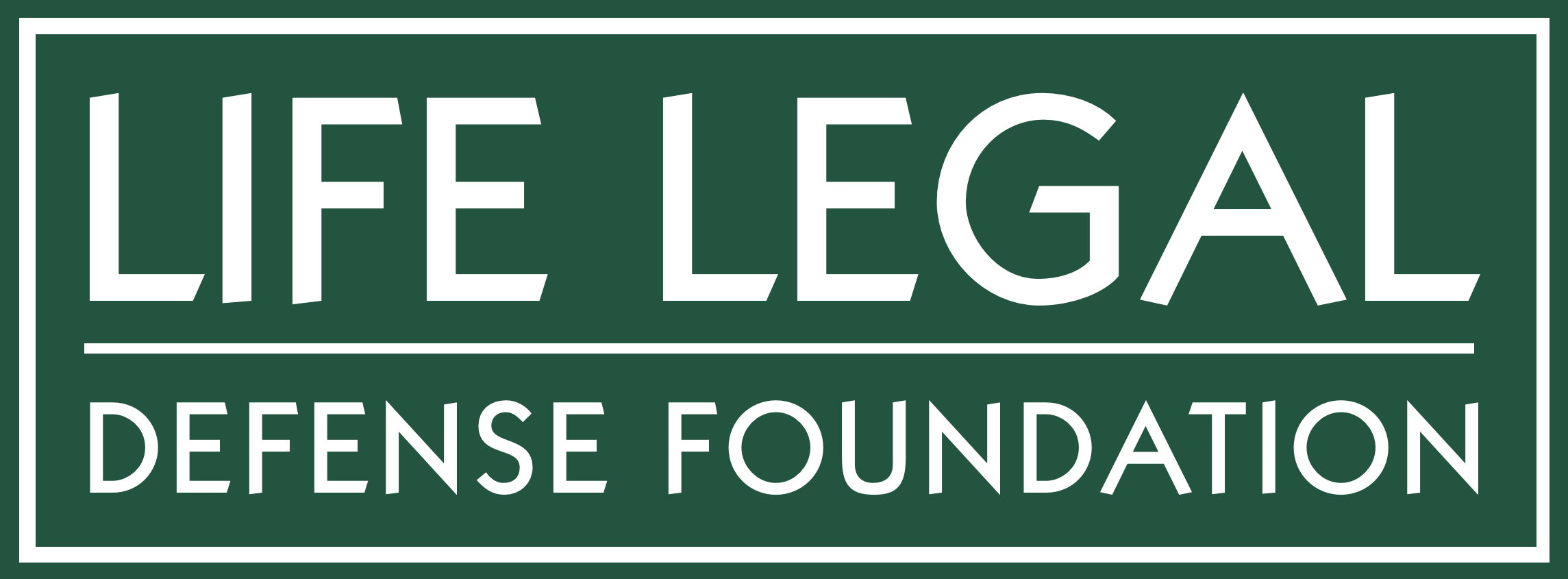Freedom2Care®
Legal Help
Have you experienced discrimination?
U.S. Department of Health and Human Services Office of Civil Rights Complaint Information
You may file a complaint under the Federal Health Care Provider Conscience Protection Statutes if you believe you have experienced discrimination because you:
- Objected to, participated in or refused to participate in specific medical procedures, including abortion and sterilization, and related training and research activities
- Were coerced into performing procedures that are against your religious or moral beliefs
- Refused to provide healthcare items or services for the purpose of causing, or assisting in causing, the death of an individual, such as by assisted suicide or euthanasia
Have you experienced discrimination?
What are the specific requirements of the federal healthcare provider conscience protection laws?
Covered entities may not, if it would be contrary to the individual’s or healthcare entity’s religious beliefs or moral convictions:
- Require the individual to participate in sterilization or abortion;
- Require the entity to make its facilities available for sterilization or abortion;
- Require the entity to provide personnel to participate in sterilization or abortion;
- Discriminate against any physician or healthcare personnel in employment or staff privileges because the individual participated in or refused to participate in sterilization or abortion;
- Discriminate against any physician or healthcare personnel in employment or staff privileges because the individual participated in or refused to participate in any lawful health service or research activity;
- Deny admission to or otherwise discriminate against any training program applicant (including applicants for internships or residencies) because of the applicant’s reluctance or willingness to participate in sterilization or abortion; or
- Discriminate against any individual or institutional health care entity that does not train in the performance of abortions or provide, pay for, provide coverage of, or refer for abortion.
Covered entities must:
- Deem accredited any postgraduate physician training program that would be accredited, but for the reliance on an accrediting standard that (regardless of whether such standard provides exceptions or exemptions) requires an entity to perform abortions; or provide training for abortions.

What Steps Can You Take?
Seek Legal Help
Seek initial counsel, without obligation, from a non-profit legal organization.
Report to HHS
Report discrimination to the U.S. Department of Health and Human Services, Office for Civil Rights.
Report to EEOC
Report workplace discrimination to the U.S. Equal Employment Opportunity Commission.
Seeking Legal Counsel
If you have experienced discrimination because of your convictions, a wise approach is to refrain from making any statements or taking actions until you obtain legal counsel. However, even if you have already taken action and even if the discrimination occurred in the past, you may still be able to seek justice through the legal system. Each of the legal organizations below has worked with Freedom2Care to defend freedom of faith, conscience and speech. They can help you sort out your best course of action:


Becket Law is a non-profit, public-interest legal and educational institute with a mission to protect the free expression of all faiths. Becket exists to vindicate a simple but frequently neglected principle: that because the religious impulse is natural to human beings, religious expression is natural to human culture.
To discuss an existing or potential legal matter, please contact our Legal Assistants via email at:
inquiries@becketlaw.org. Include your full name, your contact information, a brief summary of your situation, and a specific statement of the assistance you seek.
We prefer email correspondence, but if email is unavailable to you, please call
(202) 349-7220.

Bioethics Defense Fund (BDF) is a public-interest law firm whose mission is to advocate for human dignity in law, science and medicine. BDF provides legal expertise, policy strategy and professional education on the issues of healthcare rights of conscience, abortion and its impact on women, human cloning/destructive human embryo research, and end of life issues including physician-assisted suicide and healthcare rationing.
Learn more at bdfund.org or contact BDF president and general counsel Nikolas T. Nikas at:
ntnikas@bdfund.org or at (602) 751-7234.

Christian Legal Society
8001 Braddock Road Suite 302
Springfield, Virginia 22151
Phone: 703-642-1070
Fax: 703-642-1075
Email: clshq@clsnet.org

Life Legal Defense Foundation is a public interest non-profit law firm that defends the civil rights of pro-life advocates, and is committed to protecting the individual freedoms of health care professionals. LLDF recently presented a training addressing the conscience rights of medical professionals entitled Do No Harm. Information about the training is available at lldf.org.
If you are in need of legal assistance, please do not hesitate to call:
707-224-6675.

As a result of a partnership between Christian Medical & Dental Associations (CMDA) and Alliance Defending Freedom (ADF), we are now offering free legal consultations for CMDA members who may be experiencing conscience freedom issues in the workplace. Exclusively available to CMDA members, this program is designed to serve members who feel they are being discriminated against in the workplace due to their firmly held moral and religious beliefs.
Reporting to U.S. Department of Health & Human Services (HHS)
Nonprofit Legal Firms
The non-profit, public interest legal foundations below typically provide counsel without cost to clients.
How to File an HHS Conscience Complaint
Filing a complaint is a simple, straightforward proposition: You tell your story of what happened--who, what, when, where.
Maybe as a result of conscience or relgious faith issues, you were: fired; pressured to participate in a conscientiously objectionable action or referral;
denied privileges; denied admission to an educational or training program; denied tenure; penalized; subjected to any other form of discrimination based on your conscience and religious convictions. Even if your story occurred decades ago, you can still report it, since investigating conscience discrimination cases is not legally constrained by a lapse of time.
No need for legalese, no complicated forms. You can file a complaint with the U.S. Dept. of Health and Human Services Office of Civil Rights—online or via mail, fax, or e-mail.
HHS Resources
- Conscience Protections
- Religious Freedom
- Filing a Complaint
- HHS Conscience and Religious Freedom Division
- Regulation for the Enforcement of Federal Health Care Professional Conscience Protection Laws
- Your Rights Under the Federal Health Care Professional Conscience Protection Laws
- Enforcement of the Federal Health Care Professional Conscience Protection Laws
Reporting to U.S. Equal Employment Opportunity Commission (EEOC)
Title VII of the Civil Rights Act of 1964 (Title VII) protects applicants and employees from religious discrimination in hiring, firing, promotions, training, wages, and benefits, as well as from a hostile work environment. Title VII also makes it illegal to retaliate against a person for complaining about discrimination, filing a charge of discrimination, or participating in an employment discrimination investigation or lawsuit. The law requires that employers reasonably accommodate applicants’ and employees’ sincerely-held religious observances and practices, unless doing so would impose an undue hardship on the operation of the employer’s business.
Filing A Charge of Discrimination With EEOC
If you believe that you have been discriminated against at work because of your race, color, religion, sex (including pregnancy, gender identity, and sexual orientation), national origin, age (40 or older), disability or genetic information, you can file a Charge of Discrimination. A charge of discrimination is a signed statement asserting that an employer, union or labor organization engaged in employment discrimination. It requests EEOC to take remedial action.

